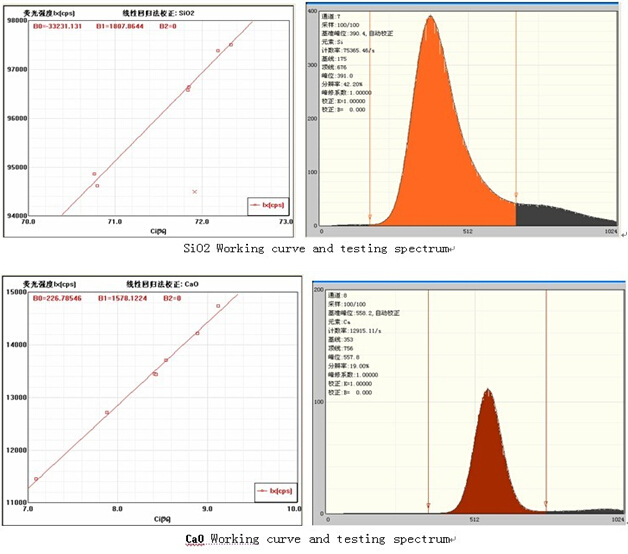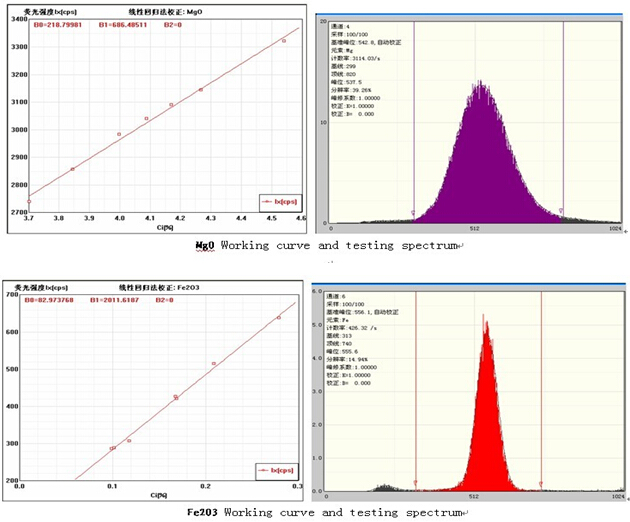1、Brief introduction of glass
Glass is usually divided into oxide and non-oxide glass by main
ingredients. Non-oxide glass is divided into chalcogenide glass (anion is such
as sulfur, selenium, tellurium) and halide glass; oxide glass is divided into
silicate glass, borate glass, phosphate glass, etc.
At present market, the silicate glass, according to its different contents of
SiO2 and alkali metals and alkali earth metal oxides, can be divided into
categories as below:
1、Quartz glass: SiO2 content is more than 99.5%.
2、Vycor glass: SiO2
content is more than 96%.
3、Soda-lime glass: SiO2 is the main ingredient, and
15% Na2O and 16% CaO. Yields occupy 90% of the practical glass.
4、Lead
silicate glass: Main ingredients are SiO2 and PbO.
5、Aluminum silicate glass:
Main ingredients are SiO2 and Al2O3.
6、Borosilicate glass: Main ingredients
are SiO2 and B2O3.
7、Phosphate silicate: Main ingredients are SiO2 and
P2O5.
2、Chemical composition of glass
(1)Simple glass: Na2SiO3、CaSiO3、SiO2 or Na2O?CaO?6SiO2
(2)Quartz glass:
With pure quartz as the main raw material, the ingredient is SiO2.
(3)Potassic glass: K2O、CaO、SiO2
(4)Borate glass: SiO2、B2O3
(5)Flashed glass ( add some metal oxides in the manufacturing process of
simple glass, Cu2O——red;CuO——cyan;CdO——pale
yellow;CO2O3——blue;Ni2O3——greenblack;MnO2——purple;colloid Au——red;colloid
Ag——yellow)
(6)Dichroic glass ( high-quality flashed glass with the rare
earth oxides as a coloring agent, silver halides, silver molybdate, copper
halides, cadmium halides, thallium chloride)
(7)Optical glass ( add a few
light-sensitive material in the ordinary borosilicate glass material, such as
AgCl and AgBr, and then add a small quantity of sensibilizer, such as CuO to
make glass more sensitive to light)
(8)Luster glass ( add great amount of
fluorides and small amount of sensibilizer and bromides in the simple glass
material)
(9)Toughened glass ( have the same constituents as simple glass)
(10)Protection glass ( add appropriate supporting materials in the simple
glass manufacturing process to make it have the function of preventing intense
light, heat and radiation to protect personal health. For example,
grey----bichromate, ferric oxides absorb UV and part visible light; cyan----NiO
and FeO absorb IR and part visible light; lead glass----lead oxides absorb X-ray
and γ-ray; dark blue----bichromate, FeO and Fe2O3 absorb UV, IR and most visible
light; the addition of cadmium oxide and boric oxide can absorb neutron
current).
(11)Microcrystalline glass ( also named as crystal glass or glass
ceramics, made of the simple glass with adding gold, silver, copper and others
to instead of stainless steel and gem for radome and missile top)
(12)Glass
fiber ( pulled from the molten glass or blown into a fiber with the diameter in
several micron to several thousands of micron, the constituents are the same as
glass)
(13)Glass filament ( that is glass fiber)
Note: Among item 11- 13: Simple glass.
3、Key constituents of fluorescence analysis glass
Si、Ca、Na、Mg、Fe、Al、P、K、S、B、Pb、Cu、Cr、Cd、CO、Ni、Mn、Au、Ag and other halogen
elements.
4、Examples of fluorescence in glass
industry
Analysis result of fluorescence spectrometers of Skyray Instrument in float
glass:
1. Test conditions:
Equipment: WDX-200
Tube voltage: 40KV Tube
current: 3.5mA
Test software: V4.0.1
Sampling time: 100S
Standard
sample: Standard samples of glass provided by Building Materials Academy ( only
four elements for common measurement)
2. Test data
Working curve and test spectrum of every element, among B0
is curve pitch; B1: curve slope; test information in the spectrum: count rate,
sampling time and resolution, etc.



Test accuracy: The same sample was tested 21 times
continuously
5、Applicable Instruments
Mode: WDX200
Instrument Introduction
WDX-200 Small Multi-channel X-Ray Fluorescence Spectrometer
features for 10 fixed light diffraction channels, 10 elements being analyzed
simultaneously. These 10 elements are arbitrary from Na to U as required by the
users. The instrument, an ideal quality control choice for large and
medium-sized enterprises, is widely used in cement, steel, powder metallurgy,
coal, petroleum, caoline, corhart, environment protection industries and so on.
WDX-200 is a tailor-made high-end analytical instrument for cement industry,
meeting requirements of quality control and elemental analysis of the industry.
Every technical specification has reached the advanced standard of that of the
like international products.
Performance Characteristics:
1 、Self-developed X-ray Fluorescence analysis system is in seamless
connection with DCS system or QCX system built on the OPC SERVER and OPC
framework. The configuration can be changed to QCS server.
2 、All Chinese
operating system makes the instrument easy to manipulate.
3 、The
all-spectrum analytical technique is created by us. It traces and corrects every
spectrum in real time, which greatly improves the repeatability and stability of
quantitative analysis.
4 、There are two ways of qualitative analysis:
empirical coefficient method and theoretical a-coefficient method, among which
theoretical a-coefficient method reduces the number of standard sample greatly
while retains the accuracy of qualitative analysis.
5 、Analysis data
treatment, linear fitting, and various matrices correction
6 、The
characteristic value can be calculated according to analysis values.
7
、Man-machine interaction allows for setting and modifying the parameters.
8
、Timely output of analysis data and report
9 、Complete self-diagnosis
measures
Technical Specifications
X-ray tube: 400W thin Be end window X-ray tube made by Varian company. Rh
anode (optional)
High voltage supply: 200W (50KV4mA). 12-hour tube voltage
& tube current stability: better than 005 %.
Measurable elements: 10
arbitrary elements from Na to U.
Detector: gas proportional detector plus
sealed proportional detector; 10 paths of 1024-channel independent pulse height
analyzer
Vacuum system: independent pumping station is easy for maintenance.
The highest vacuum degree is lower than 5 Pa.
Flow gas system: high
sophisticated flow density stabilizer with stability up to ±0.003 KPa.
AC220V
power supply: 1KVA AC purified stabilized voltage power supply
Test time of
single sample: (including the time of changing the sample and pumping the
vacuum)≤3 - 5 minutes
Analysis software: There are two ways of quantitative
analysis: empirical coefficient method and theoretical a-coefficient method. As
there is an adoption of all-spectrum detection technique, the repeatability and
stability of quantitative analysis is greatly improved. The software has
all-round self-diagnosis measures. The built-in RS-232 serial communication
protocol, TCP / IP protocol (Socket based S/ C) and OPC protocol (OPC server)
enable data sharing with DCS or QCS system.


